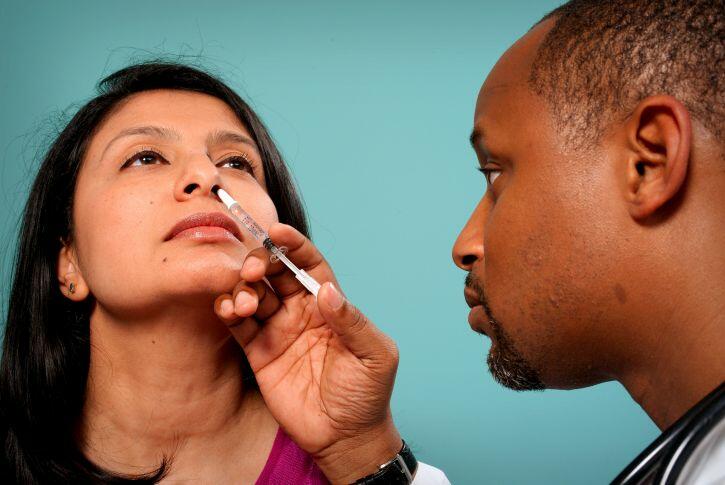
LSTM has started a clinical trial that will investigate if the new flu nasal spray, which is now given to children in UK, increases the chances of nasal colonisation with pneumococcus (the bacteria that causes pneumonia).
The research team led by Dr Ferreira will use a unique human model of pneumococcal colonisation in which healthy adults receive live pneumococcus in their nose and nasal samples are used to investigate if bacteria persists in the nose and for how long.
Volunteers will be vaccinated with either a nasal live attenuated influenza vaccine or with an inactivated influenza vaccine which is given as a jab in the arm before receiving a droplet of pneumococcus in their nose. They will be followed up for one month and the presence and quantity of pneumococcus, as well as their nasal symptoms and changes in immunological responses will be measured.
Colonisation of children is the primary reservoir of pneumococcus in the community and increased amounts of bacteria in their noses was already associated with increased transmission of bacteria. As a result there is a risk associated with mass immunization using LAIV which must be investigated.
“We know that influenza virus infections are associated with increased burden of pneumonia, particularly in children and the elderly. Research in murine models have shown that mice vaccinated with LAIV were both more susceptible in acquiring pneumococcal colonisation and had increased amounts of bacteria in their nose. LAIV is safe for use in humans but the effect of this vaccine on pneumococcus needs to be investigated” says Dr Ferreira.
The study funded by Bill and Melinda Gates Foundation will be conducted in partnership with the Royal Liverpool University Hospital and results will be available spring 2016.